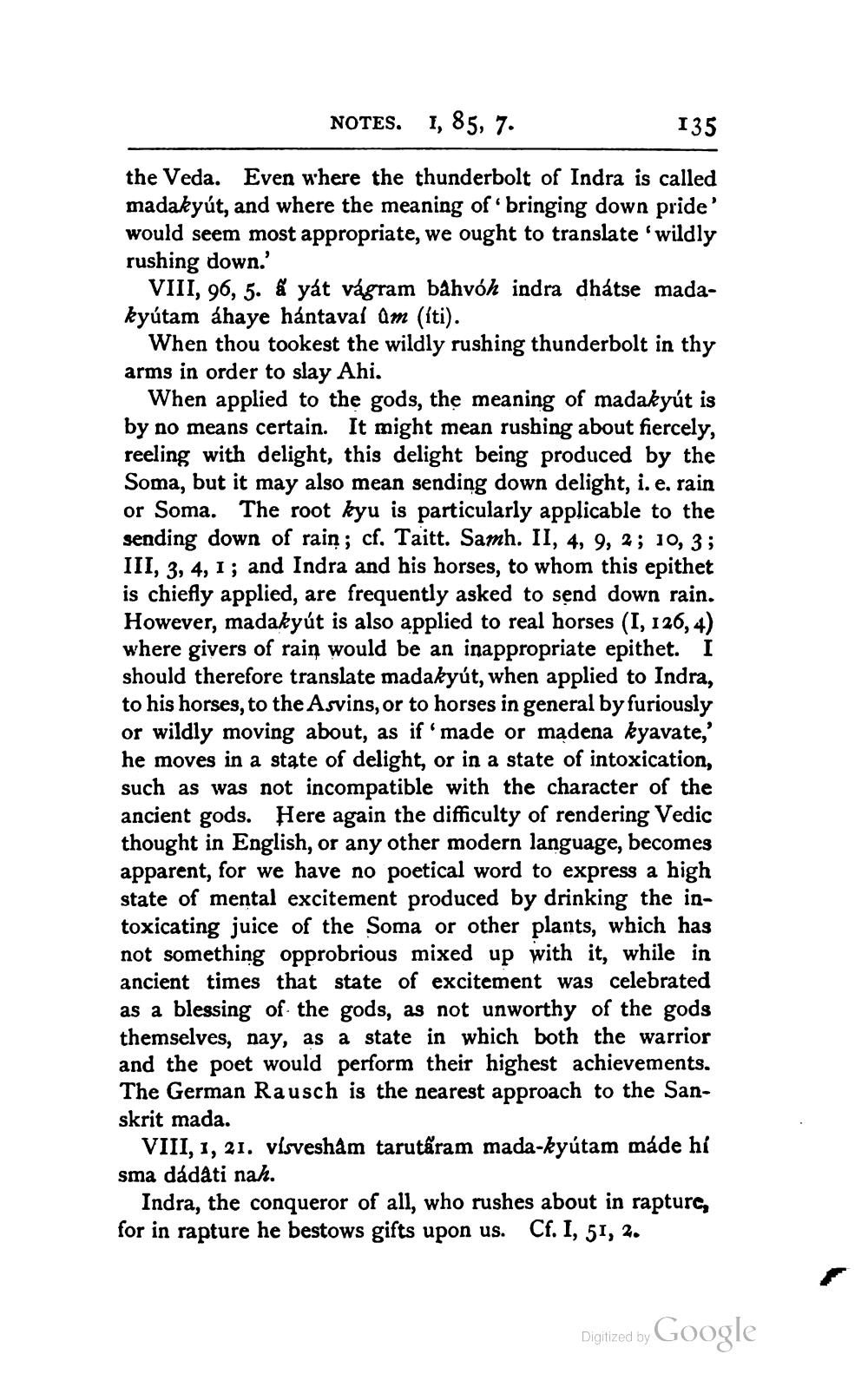________________
NOTES. 1, 85, 7.
135
the Veda. Even where the thunderbolt of Indra is called madakyút, and where the meaning of bringing down pride' would seem most appropriate, we ought to translate 'wildly rushing down.'
VIII, 96, 5. å yát vágram bahvóh indra dhátse madakyútam áhaye hántaval am (íti).
When thou tookest the wildly rushing thunderbolt in thy arms in order to slay Ahi.
When applied to the gods, the meaning of madakyut is by no means certain. It might mean rushing about fiercely, reeling with delight, this delight being produced by the Soma, but it may also mean sending down delight, i. e, rain or Soma. The root kyu is particularly applicable to the sending down of rain; cf. Taitt. Samh. II, 4, 9, 2; 10, 3; III, 3, 4, 1; and Indra and his horses, to whom this epithet is chiefly applied, are frequently asked to send down rain. However, madakyút is also applied to real horses (I, 126,4) where givers of rain would be an inappropriate epithet. I should therefore translate madakyút, when applied to Indra, to his horses, to the Asvins, or to horses in general by furiously or wildly moving about, as if made or madena kyavate,' he moves in a state of delight, or in a state of intoxication, such as was not incompatible with the character of the ancient gods. Here again the difficulty of rendering Vedic thought in English, or any other modern language, becomes apparent, for we have no poetical word to express a high state of mental excitement produced by drinking the intoxicating juice of the Soma or other plants, which has not something opprobrious mixed up with it, while in ancient times that state of excitement was celebrated as a blessing of the gods, as not unworthy of the gods themselves, nay, as a state in which both the warrior and the poet would perform their highest achievements. The German Rausch is the nearest approach to the Sanskrit mada.
VIII, 1, 21. visvesham tarutấram mada-kyútam máde hi sma dádati nah.
Indra, the conqueror of all, who rushes about in rapture, for in rapture he bestows gifts upon us. Cf. I, 51, 2.
Digitized by
Digized by Google




